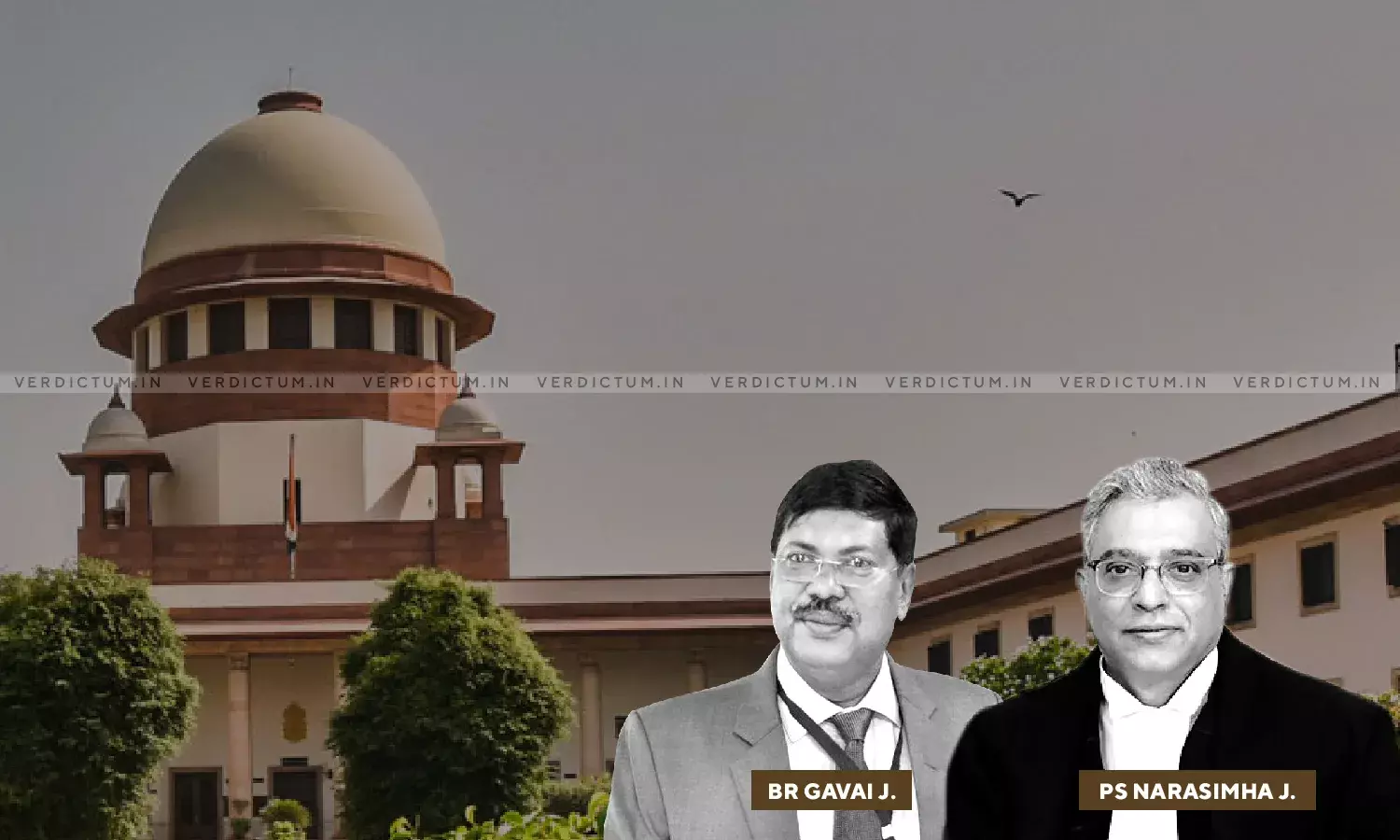Regardless Of How Strong, Mere Suspicion Cannot Be Ground For Conviction Of Accused – SC Reiterates
A Supreme Court Bench of Justice BR Gavai and Justice PS Narasimha heard an appeal against an order of the Punjab & Haryana High Court which dismissed the Appellant's plea and convicted him for offenses under Section 302 and 201 IPC.
Setting aside the order of the High Court, the Supreme Court held that, "It is settled law that the suspicion, however strong it may be, cannot take the place of proof beyond reasonable doubt. An accused cannot be convicted on the ground of suspicion, no matter how strong it is. An accused is presumed to be innocent unless proved guilty beyond a reasonable doubt."
The Court also held that it is not safe to convict the accused based on the extra-judicial confession made to the witnesses.
AOR Mr. Rishi Malhotra appeared on behalf of the Appellant and AAG Mr. Birendra Kumar Choudhary appeared on behalf of the State.
In this case, the Appellant was accused of murder.
As per the prosecution's case, the deceased had approached the Appellant with a proposal of marriage between the deceased's son and the Appellant's sister. Angered by this proposal, the Appellant pressed the throat of the deceased and strangulated him. In order to destroy the evidence, the Appellant burnt the dead body but failed to burn it completely. He then concealed the dead body in paddy fodder. When the Appellant was questioned by the Complainant the next morning, he confessed and the body was found. Subsequently, an FIR was registered.
The Sessions Judge passed orders of conviction and sentence for offenses punishable under Section 302 and 201 of IPC. The Appellant approached the High Court but his appeal was dismissed.
The Appellant then approached the Supreme Court.
The Supreme Court opined that the prosecution's case rested on circumstantial evidence.
The Court relied on the judgment in the case of Sharad Birdhichand Sarda vs. State of Maharashtra – in which the law with regard to conviction on the basis of circumstantial evidence had been crystalized – and opined that "there has to be a chain of evidence so complete so as not to leave any reasonable ground for a conclusion consistent with the innocence of the accused and must show that in all human probability the act must have been done by the accused. It has been held that the circumstances should be of a conclusive nature and tendency. This Court has held that the circumstances should exclude every possible hypothesis except the one to be proved. It has been held that the accused 'must be' and not merely 'may be' guilty before a Court can convict."
The Court was also of the opinion that the prosecution had utterly failed to establish the chain of events which could be said to exclusively lead to the one and only conclusion, i.e., the guilt of the Accused.
Therefore, the Apex Court allowed the appeal and set aside the judgment and order of conviction and sentence, and acquitted the Appellant.Cause Title - Ram Niwas v. State of Haryana
Click here to read/download the Judgment












